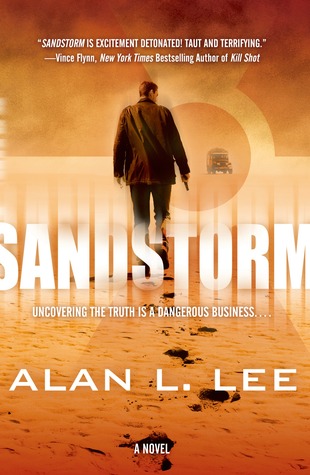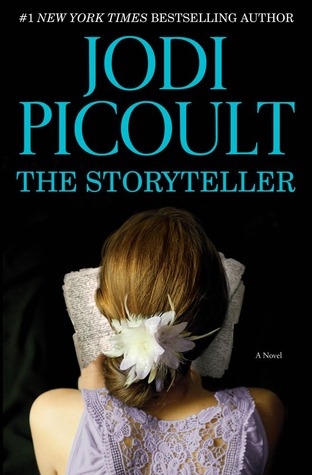Susan grew up in a small Indiana town. Her younger sister admitted that she'd be writing secretly. This admission leads to her being her sister's editor. They co-authored four novels, none of which were published. Her sister stopped after the four, but Susan was totally addicted and continue. She is married to a guy from the same town she grew up and they have two grown children.
Hi, readers! Today
Coffee& Crackers are so excited to welcome Susan Crandall, the
author of a to-be-released novel,
Whistling Past the Graveyard to the
blog and have a fun interview session talking about her previous
profession, favorite writing spot, running away from home, racism, her
novel: Whistling Past the Graveyard and the exclusive sneak peek of her
future project! Give a big applause to my guest, Susan Crandall,
everybody!
*****
C&C: You were a dental hygienist before right? So, how did you become a
writer and what are the differences between these two professions
Susan Crandall:
Yes,
I was a dental hygienist. As that profession required a science
degree, there isn’t any education overlap. However, being a good writer
often comes from being a good observer of people. I think my previous
profession provided a good opportunity to study all kinds of people.
I’ve
always been an avid reader and love playing with words, but never
considered trying my had at writing a novel until my younger sister
decided to write something and asked me to help. Once I got started
collaborating with her, I was totally hooked. She has since gone on to a
career in real estate, but I’m still writing.
C&C: What inspires your writing and where you spend most of your time
writing? some writers prefer to write on the beach or beautiful places.
Do you have any favorite place?
Susan Crandall:
Everything
around me fuels my writing; people, relationships, current events,
history. There is never a shortage of ideas and inspiration when you
open your eyes and your mind to what’s happening around you. I
love to write outdoors. I have a balcony off my office that’s my
favorite place. My main requirement is absolute solitude. I can’t
write with other people around me. I know some folks like writing at
cafes and such, but I’m far too distracted in a place like that.
C&C: In your latest novel, Whistling Past the Graveyard, the story is
narrated from a nine year old, Starla's point of view. Why you choose a
little girl character? And how you put yourself in a little girl's mind?
Is it difficult?
Susan Crandall:
I
always put a lot of thought into my characters and how they’ll interact
with my plot before I begin writing any book. For this coming-of-age
story I wanted to give a perspective of the world seen directly through
the eyes of a child—not as an adult reminiscing about an event that
happened to her when she was a child. I chose her age carefully, old
enough to be beginning to look at the world outside of her own
experience, old enough to be able to take care of her own basic needs,
and yet young enough that this awakening to the wider world is just
beginning and her impetuousness isn’t curbed. I chose the time period
and setting carefully as well. Foremost among my reasons for these
choices was the need for a time before an organized network that
immediately begins searching for a missing child. In the early 1960s
small towns, kids Starla’s age regularly went out to play all day long
and no one knew exactly where they were. Also, I wanted it to be a time
of change in our society; giving me a lot of fuel for conflict and
drama.
I
really enjoy writing youthful characters and had a great time working
on Starla’s story. It did take a few chapters before I found the true
rhythm of Starla’s voice, but once I found it, she was a joy to write.
And yes, it did take some discipline to keep my adult perceptions and
voice out of it. Using this unfiltered child’s point of view gave this
story it’s flavor, but occasionally I struggled with how to present
certain views so the reader understood that Starla was
misunderstanding. When you only have a nine-year-old’s words, a
nine-year-9-old’s understanding, you have to figure out ways to convey
deeper meaning to the reader.
C&C: Just wondering, have you ever run away from home?
Susan Crandall:
No! Starla is much braver (and more impulsive) than I was as a child.
C&C: About the racial segregation you highlighted in the book, did you do any
special research on it? In this modern world, I believe racism still
exist, what say you about this?
Susan Crandall:
I
did a great deal of research. Fortunately, the sixties was a time
period of mass media, so I found a lot of first-hand accounts, film
footage and the like to draw from. I have to say, the film footage was
the most compelling—I was able to see actual events as they were
happening. As for racism in modern day, I feel we have
made progress, but are far from the idyll of perfect equality, perfect
harmony. And of course, it varies widely around the world.
C&C: For me, Whistling Past the Graveyard will be a huge success. So, what will come next? Any new project in progress?
Susan Crandall:
Thank you! I
do have another project brewing. It takes place during another pivotal
era in U.S. history, the 1920s. It will have a youthful narrator, but
one much nearer adulthood than Starla. Sixteen-year-old Henry is the
son of a German immigrant who suffered a great deal of anti-German
sentiment during WWI. Henry is falsely accused of a crime and goes on
the run with a WWI veteran barnstorming pilot. This story is still in
the very early stages, but is beginning to take shape nicely.
C&C: Thank you Susan!
Susan Crandall:
Thank you so much for this interview and your kind words about Whistling Past the Graveyard.
*****
ABOUT THE BOOK
 When Starla is grounded on the Fourth of July, she sneaks out to see the
parade. After getting caught, Starla's fear that her grandmother,
Mamie, will make good on her threats and send her to reform school cause
her to panic and run away from home. Once out in the country, Starla is
offered a ride by a black woman, Eula, who is traveling with a white
baby. She happily accepts a ride,with the ultimate goal of reaching her
mother in Nashville. As the two unlikely companions make their long and
sometimes dangerous journey, Starla's eyes are opened to the harsh
realities of 1963 southern segregation. Through talks with Eula,
reconnecting with her parents, and encountering a series of surprising
misadventures, Starla learns to let go of long-held dreams and realizes
family is forged from those who will sacrifice all for you, no matter if
bound by blood or by the heart. - NetGalley
When Starla is grounded on the Fourth of July, she sneaks out to see the
parade. After getting caught, Starla's fear that her grandmother,
Mamie, will make good on her threats and send her to reform school cause
her to panic and run away from home. Once out in the country, Starla is
offered a ride by a black woman, Eula, who is traveling with a white
baby. She happily accepts a ride,with the ultimate goal of reaching her
mother in Nashville. As the two unlikely companions make their long and
sometimes dangerous journey, Starla's eyes are opened to the harsh
realities of 1963 southern segregation. Through talks with Eula,
reconnecting with her parents, and encountering a series of surprising
misadventures, Starla learns to let go of long-held dreams and realizes
family is forged from those who will sacrifice all for you, no matter if
bound by blood or by the heart. - NetGalley
FOOTNOTE: Whistling Past the Graveyard will be published on July 2nd, 2013 by Gallery Books. Pre-order this book :
Amazon | Barnes&Noble | IndieBound. I received the e-ARC copy from Netgalley.com for review [Read
MY REVIEW]











